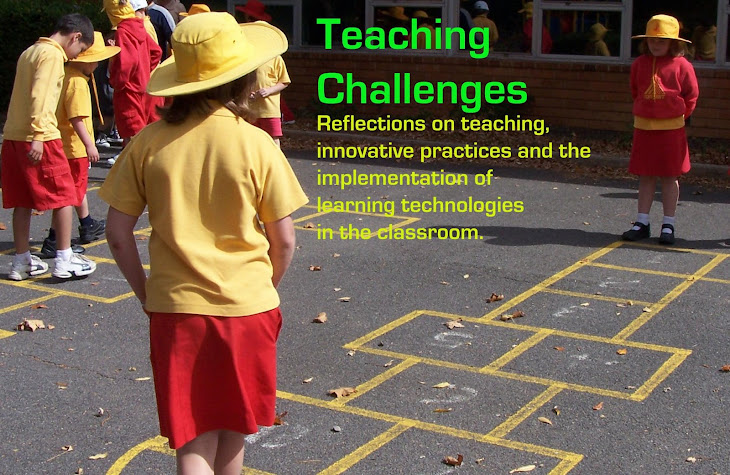
This year I haven't found the planning/programming side of things so easy. Having moved from Year 1 to Year 4 I've found myself struggling to modify my teaching strategies, plan for new learning, and read/research all at once. It has been a challenge, but I think I seem to be getting there now.
Writing a teaching program is quite a complex task requiring a number of higher-order thinking skills. Teachers need to:
- Analyse the guiding materials eg. National Statements, State Frameworks, School Curriculum.
- Design a format for the program that will make it a useful working document as well as meeting the needs of supervisors.
- Evaluate resources to use for teaching the content and providing learning experiences for students.
- Create lessons and activities that will engage students and meet the outcomes.
- Predict student needs and difficulties in order to differentiate tasks.
- Devise assessment tasks to determine whether student outcomes were achieved.
- Compile succinct instructions to explain lessons effectively but using very few words.
When confronting programming, these are generally the steps I take:
- Check out the unit of work - jot down any ideas that immediately come to mind
- Grab some resources - flick through books, search online and find relevant lessons and activities that will help students to learn the material and meet the outcomes
- Get creative - search more widely, think about people resources, movies, games, simulations etc that will engage students and provide for new learning opportunities.
- Data input - start up a table in a word processing document and put in the required outcomes. Start structuring and ordering the ideas to progress learning of these concepts. (In my mind, this is the hardest part of the process).
What do you consider to be the challenges of programming? What strategies do you use? Please share your thoughts in the comments.








hi Penny
ReplyDeleteBig changes for you from Year 1 to 4 and knowing what wonderful things you share on your webpages, I can only imagine the wonderful learning environment you are creating. I can only suggest starting planning from what evidence is informing your practice.
We have taken quite a shift away from teaching units to teaching what the students need. At the beginning of the year there is a huge array of testing done, and then from there the teachers group children and teach to their needs. Even in our "topic" inquiry planning - only the first part of our planning can be planned (which is the immersion stage)... from here it is dependent on the kids questions for the inquiry within the "global key question".
Your analysis of Higher Order Thinking tools you use to prepare for the programme are extremely thorough! Well done - I can now see where you are spending all your time (you are less on twitter now) as your energies are needed in your programming - good luck my friend, it will get easier!
all the best
Justine
Hi Justine,
ReplyDeleteThanks for your comment. For the most part, we try to do as you suggest and teach to fill the gaps. We test students and then group them in ways to teach to what they need to know. This is particularly easy when it comes to English and Maths. We also use the results from NAPLAN (national testing) to inform our teaching.
For our Integrated Inquiry lessons, we have specific content to cover, or "Key Questions" to answer, but do so through a variety of resources. It is still more teacher directed than what you suggest. Activities are selected for "tuning in", "finding out", "sorting out", "making conclusions", "taking action" and "going further".
I'd love to hear more about how your inquiries work.
Cheers,
Penny